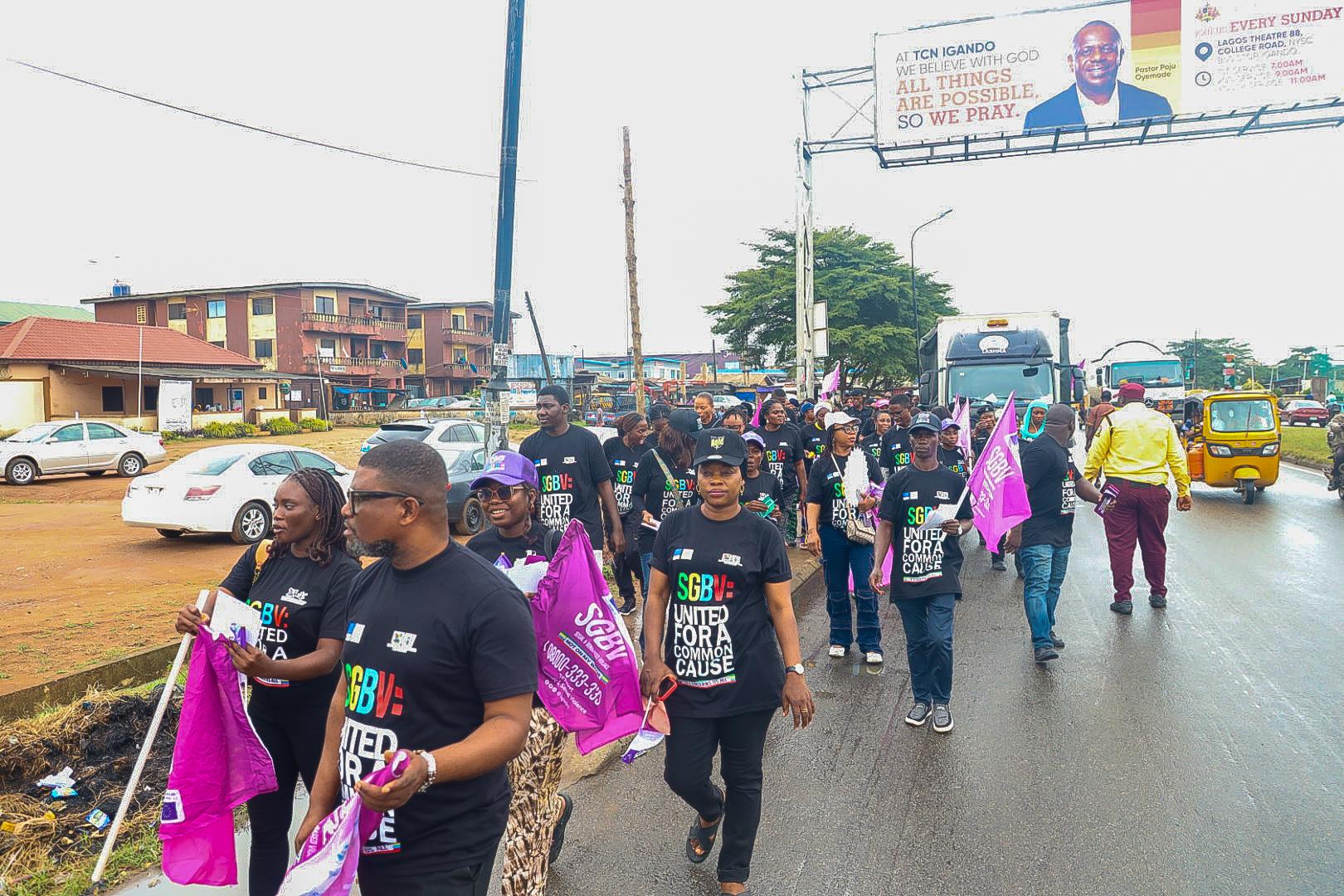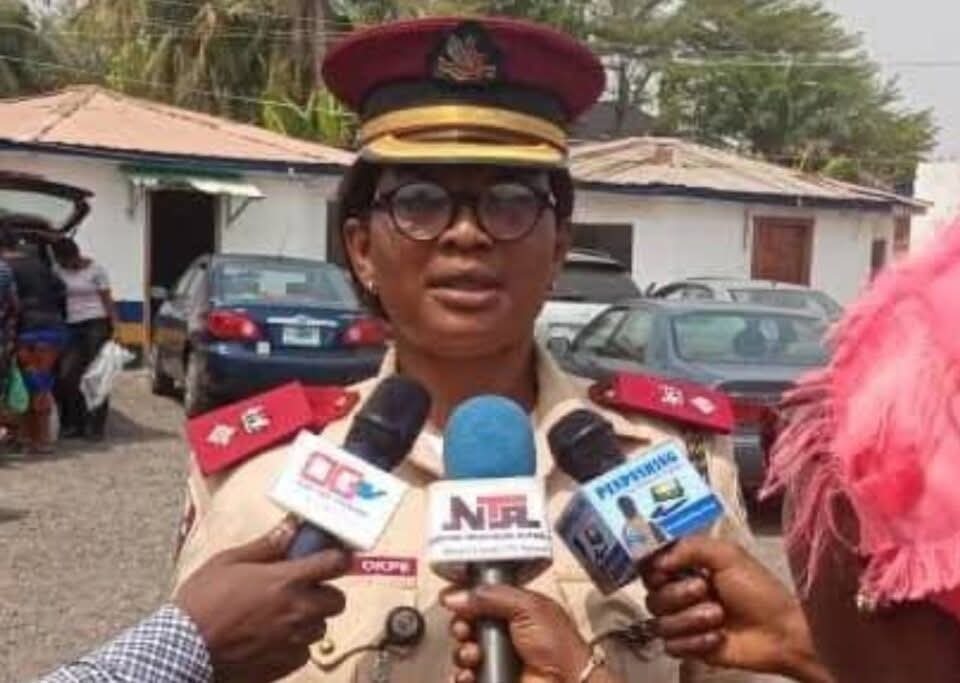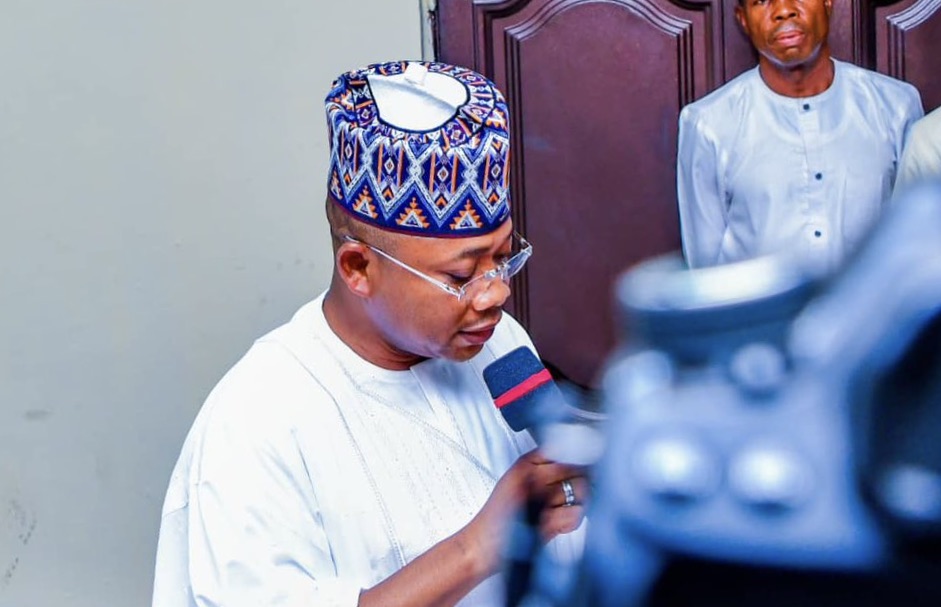It was a September to remember in Lagos as conversations on Sexual and Gender-Based Violence (SGBV) echoed across communities, markets, schools, and boardrooms.
Across 15 major events, the 2025 Awareness Month directly engaged thousands and indirectly reached millions. For the Lagos State Domestic and Sexual Violence Agency (DSVA), this year’s Awareness Month carried an urgent theme: “SGBV – It Concerns Us All.”
From the Secretariat in Alausa to the bustling Ojota Motor Park, from the classrooms of Surulere to the palaces of Lagos’ traditional rulers, the campaign reached every layer of society. Thousands were directly engaged, while millions more felt the ripple effects of interventions designed to inspire prevention, strengthen protection, and ensure justice for survivors.
The month began on August 29 with a media parley at Alausa, Ikeja, where over 50 journalists gathered as the agency shared key statistics: rising reports of SGBV cases, faster response times, and the expansion of Family Support Units across the state.
The meeting was not just about data; it was about enlisting the press as allies in shaping survivor-sensitive narratives. On September 1, the Secretariat and Lagos State House of Assembly were lit purple, symbolising the government’s resolve. More than 1,200 civil servants joined the flag-off, pledging their support. The message was clear: the fight begins from the seat of governance.
The streets came alive on September 3 during the first advocacy walk. Hundreds marched through Onigbongbo LCDA into Ikeja Local Council, their chants and placards reaching more than 4,000 commuters and passers-by. It was the first of two solidarity walks that filled Lagos with the urgency of ending SGBV.
The agency deepened its grassroots partnerships by turning the Community Development Advisory Councils (CDACs) purple. Eighteen Community Development Committees (CDCs) and 367 Community Development Associations (CDAs) had already mobilised thousands over the past year, directly reaching 851,000 residents and influencing over 1.7 million indirectly.
On September 3, 57 CDAC leaders were decorated with purple lapel pins, reinforcing their roles as ambassadors. The following day, DSVA visited the Iyana-Ipaja motor park. Drivers, union leaders, and commuters, over 2,000 in total, were sensitised on safety and timely reporting of abuse. A week later, Ojota Motor Park became another hub of transformation. By engaging the transport sector, the message was embedded where Lagosians spend much of their daily lives.
Markets, the heartbeat of Lagos, also became arenas of change. On September 9, Couples Wey Sabi unfolded in Oyingbo Market, sparking conversations about healthier relationships. A week later at Mile 12, Men Wey Sabi drew over 500 men to cooking and childcare competitions. With support from Power Oil Nigeria and KissKids, the campaigns challenged stereotypes and encouraged men to be allies in caregiving and prevention.
On September 16, survivors became the loudest voices. At Survivors’ Day, over 300 stakeholders listened as women and men shared stories of resilience. Their testimonies cut through statistics, making advocacy personal and urgent. “We are not victims; we are survivors,” one participant declared to thunderous applause.
A day later, over 50 civil society organisations gathered at Protea Hotel, Alausa, to discuss survivor-centred responses. The outcome was stronger referral pathways, harmonised documentation systems, and renewed urgency to eliminate duplication of services.
Meanwhile, children across Lagos were not left behind. From September 22 to 26, Safeguarding and Child Protection Week reached 1,750 pupils.
Under the theme “It’s Okay to Tell,” children learned how to identify and report abuse. With a new Body Safety Song and the STRAC booklet, the lessons were both educational and engaging.
On September 24, the Civic Centre, Victoria Island, hosted over 130 professionals from banking, oil and gas, FMCG, hospitality, and labour sectors. The highlight was the launch of the Lagos State Guidelines for Preventing and Addressing Sexual Harassment in the Workplace.
For the first time, the private sector had a coordinated framework to tackle harassment, underscoring the link between safety and productivity. On September 25, 50 traditional rulers, including the Oba of Lagos, Rilwan Akiolu I, were decorated with purple lapel pins. Their endorsement lent cultural legitimacy to the campaign. “Our palaces must be safe havens, not shelters for abuse,” one royal remarked, pledging support for grassroots advocacy.
The Awareness Month culminated on September 30 at Whitestone Event Place, Ikeja, with the Governor’s Awards and Commendation Night. Over 300 dignitaries attended, applauding the heroes of the movement. Owutu Family Support Unit was named Best FSU, Sangotedo PHC emerged Best Primary Health Centre, Ikorodu General Hospital won Best General Hospital, Eti-Osa Local Council received Best Family Social Services Department, Education District V earned Most Responsive Education District, while WRAHP was recognised as Outstanding NGO Service Provider. Each awardee received a N1 million cheque, a token of appreciation for service beyond the ordinary.
Governor Babajide Sanwo-Olu, represented by the Attorney-General and Commissioner for Justice, Mr Lawal Pedro, SAN, described the event as “more than a celebration, but a reaffirmation of Lagos State’s commitment.”
Executive Secretary of DSVA, Mrs Titilola Vivour-Adeniyi, closed the night with a reminder: “All of us have a role to play. From the police officer to the healthcare worker to the market trader, we must all see ourselves as reporters. If you see something, say something, so we can do something.”






